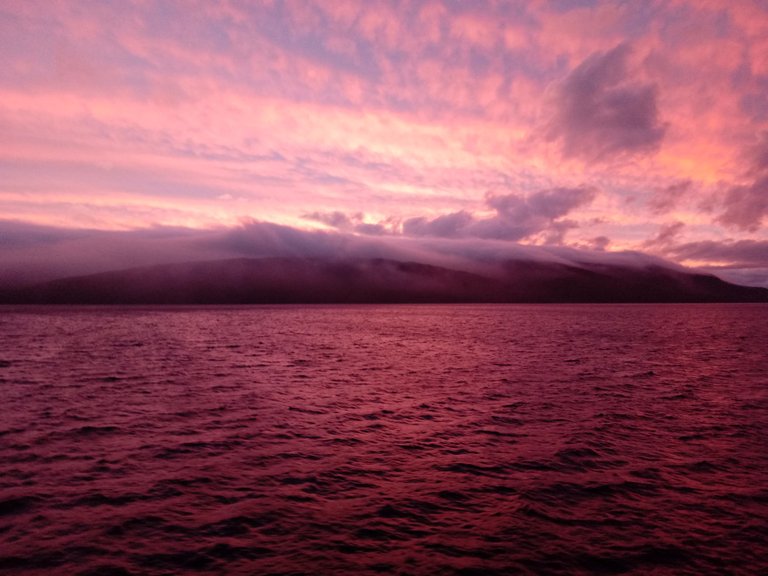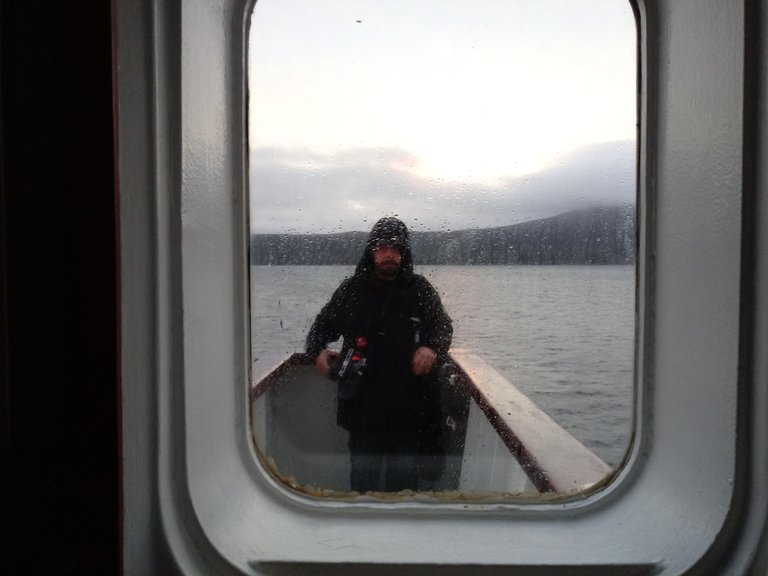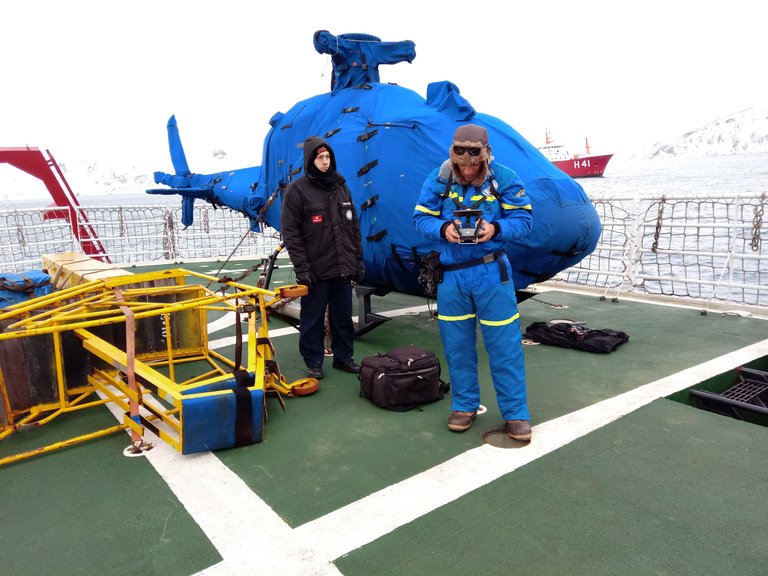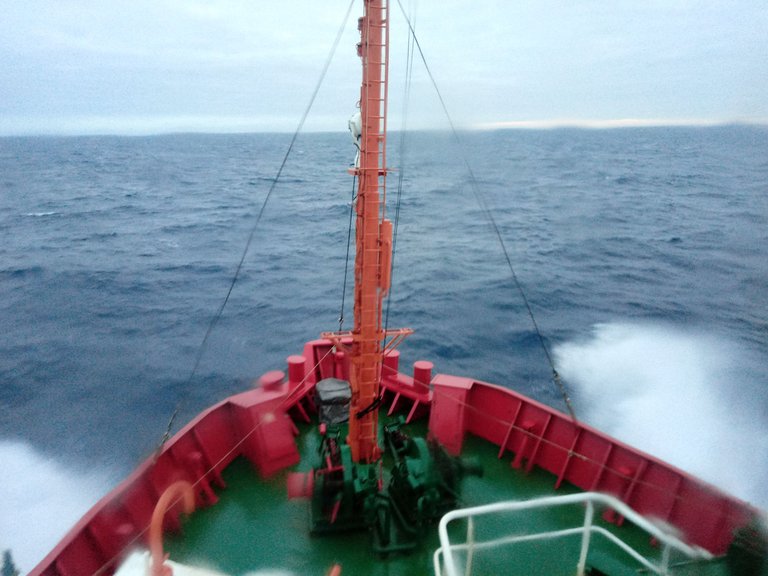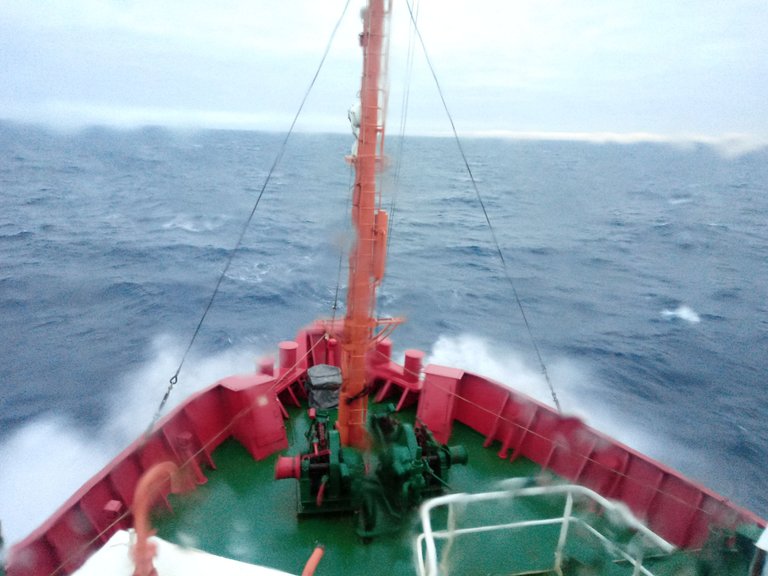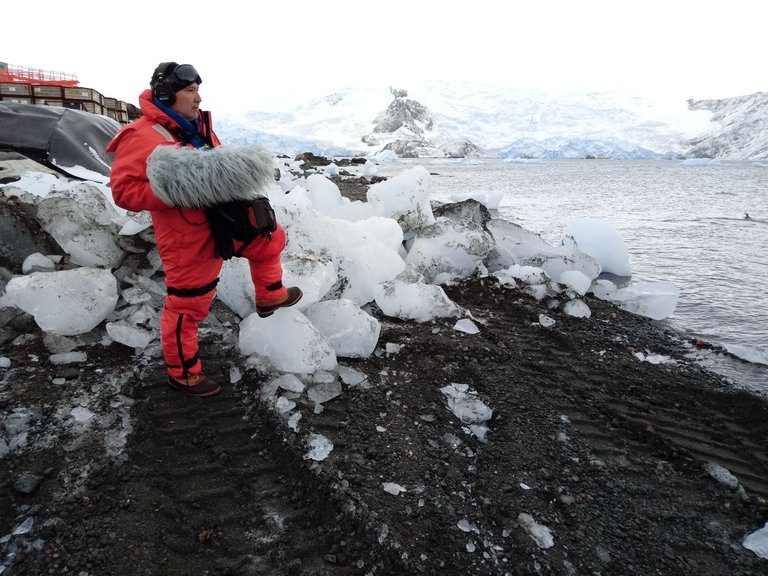Whoever lives at sea is neither alive nor dead, he is at sea. I ask F. Pessoa's permission to begin this prose.
The documentary maker's life is like fishing, with the lens, we hope that he catches, with his eyes, a fish, in order to build a film, which feeds movie lovers. So it was when, in an interview, E.Medeiros, a helicopter pilot, quoted Pessoa, the fish entered the net.
The arrival in the extreme south, where we are upside down in the big ball, was aboard the Hercules, a Brazilian air force plane. We were dozens of journalists going to Antarctica for different purposes. The warning was that if the plane failed to land, we would take off and return to Punta Arenas, a Chilean city, in the Strait of Magellan, and the dream of discovering the frozen continent would turn to ashes. It was 3 hours of travel, tight, inside that plane, with no windows, which we didn't really know when the plane took off. Within moments, after we felt we were airborne, we noticed people standing in line to film the cockpit. It wasn't in the interest of our documentary, but we ended up going, as everything from there would be great news. I came to this, alongside the director of photography Daniel Leite, who I assist with the camera, as we came to continue the documentary called: "Vidas Embarcadas", directed by Beth Ritto. We were going to board the Brazilian Navy ship, providing logistical support in Antarctica, the Ary Rangel, H44. The plane barely made a run for it, as there was a lot of wind and a blizzard was falling on the Chilean base, where an airstrip operates. The landing was an adrenaline rush! When landing, it bounced once and skidded to a stop. I looked at Daniel and Carlos, the sound technician with a wan smile. Carlos even slept on the flight, traveling to more than 22 countries in the service of audiovisual and for those who almost fell on a plane, returning with all the equipment, after 6 weeks in Xingu, that was nothing more than one more! It is a great learning experience to be in his company and not giving him money, because according to him: give me money, but don't give me intimacy. So I started calling him Carlin.
Finally, we are here! The temperature was minus 2 and thermal sensation minus 22, as announced before the departure of the aircraft. The first sight out of the dark was of a white, a grey, an ice, a few seasons, mother I arrived on the moon! People's clothes and the look should be no different. No exposed body parts. Nothing around but ice, snow, wind and some satellite antennas in the distance, an aircraft and beacons, where a few cars pass. From there we took a car that took us to a beach where we boarded a boat that took us to the ship. When boarding, we were warned: the survival time if someone goes into the water is 90 seconds.
Everyday life at h44 was regulated as one imagines military life. 7:15 am breakfast, 11:15 am lunch, 5:15 pm dinner, 9:00 pm supper. We arrived on board at lunchtime. Ten Jardim received us and showed us our cabin, after a short tour through the narrow aisles of the vessel. Box 615 was intended for us and had two bunk beds, six cupboards and a table. The first night we spent the three of them. On the second night two Sergeants and a Petty Officer arrived to share with us. Celestino, known as Catatau, due to appearance as in the cartoon, Ubirajara and Sub Brito. As soon as I entered the room I came across Ubirajara who explained to me that they had cleaned and tidied our mess so we could live with hygiene. Catatau asked whose toothbrush was in the bathroom. It was mine. It had fallen to the ground and he threw it away. By divine order, Brito had a spare toothbrush and in solidarity, he gave it to me. Catatau wasted no time and in a loud voice he said: João, nothing is free!
Laughter in the box.
Thus, we created good friendships with the marines who laughed and teased each other between jokes. They wanted to throw away my battered boot anyway, or Daniel wanted to arrange a prank call so they would shave my beard. It was when catatau told that the patron of the navy was Almirante Tamandaré, owner of a lady with beard. Then I shouted: I'm Tamandaré's grandson, more respect! Laughter abounded in the small box!
We didn't have time for anything because as soon as we arrived we started fishing. We went out to film the actions and discover characters for the film. We are recording life on board, from the craft of the crew, its relationship with the sea, the absence of family, among other sensations and layers surrounding life on board.
The truth is that we didn't have much time in Antarctica, as the presence of a strong cold front would leave the H44 trapped, so Captain Bras and his 1632 days on board, with excellent experience, decided to leave two days after our arrival. We had time to fly by helicopter through the Brazilian base, fly over a glacier, the peak called theta da nega and spot some whales. We got to see penguins and seals. And the most anticipated part was coming: crossing the Drake Sound.
Our departure was at night and the next day we would be sailing towards South America. 40 hours of navigation divided the frozen continent of the tip of America, in the Chilean channels. The forecast announced 40 knot winds and 5 meter waves. There was no other!
Daniel more experienced, having crossed the Drake twice, filming another documentary, with the shurman family, was restless and excited, while I was afraid of what was ahead. We went to the bridge, the control room, to film the movements in the first hour of the morning. We made a statement with officer Luiz Claudio, as his daughter was born a month ago. He bent over to explain in words what they fail to express the emotion of having a child. The Proantar mission lasts 6 months and its crew stays during this period, they communicate by cell phone when they have an internet signal. After the deposition, Carlos, seasick and discreetly went to the command bathroom. The noises coming from there gave him away. Canvas for him. From then on, he went to bed. He only got up to eat and went back to bed, as well as most of the crew who were not on duty, as was the case with Catatau, Ubirajara and Brito. The four of them stayed in the cabin, talking and drifting. The h44 looked empty. There were not the same number of people circulating the vessel as in previous days. I went with Daniel to film the kitchen and work there, when it was my turn to get seasick. I didn't find the bathroom in time and had to put it out in the trash that appeared in front of me. After that there was nobody and we had 36 hours of Drake ahead of us. I followed dani back to the bridge. The waves crashed on the ship's bow and rose to a height of 7 meters washing the windows of the command room. I looked to the horizon in search of being ok, but after a few minutes I had to run back to the bathroom. The rest of the breakfast had just gone. I returned soulless to that room, where Daniel was talking to other officers about his latest crossing. I must have been yellow and kept looking at the horizon. I helped Daniel change and clean the lenses. I wrapped the camera in the plastic cover, as he was going to film the waves without the intermediary of the windows. Windows no. On the ship there is no window, there is watch, there is no bed, there is a bunk bed, there is no floor, there is no floor, there is no rope, there is a cable. So done! It was washed off in the first big where it burst on the bow. We had a good image and a soaked man. For him, this was the big chance to live Drake again. In his eyes, you could see the will and certainty, that he was in the right place. For those who, when he was a boy traveling with his father, chief engineer of the merchant marine, through the Amazon and at age 12 he got a camera, teak, disposable of his own and spent his days of navigation photographing from the bridge, whatever came to his eyes, definitely Dani is in its place. It's funny how life returns to us and bends our memories. More than once he went outside to film the mismatched waves that crashed through the H44, making a vibration through the entire skeleton of the ship. Seasick, I was through! My soul was there in the middle of those huge waves and my semi standing body kept leaning against the glass that was cleaned minute by minute by the waves that found at the right time the collapse of the ship. An emotion filled my belly, rose in my chest and drenched my eyes with that churning sea that reflected on me. The uneven waves and the strong wind made the red giant with its hundreds of crew a toothpick in the salsajar. It took two days to reach the calm of the Chilean canals. We entered the beagle channel and saw the Straits of Le Maire and Cape Horn on the other side. From then on I came back! I felt hungry and wanted to eat, because on the two days of crossing, I would put the minimum inside and go to bed in the cabin where I found my friends. Q they didn't leave!
It was intense and refreshing to feel that I am nothing in this immensity of water, in this end of the world and that we are not alive, we are not dead, we are just at sea.
